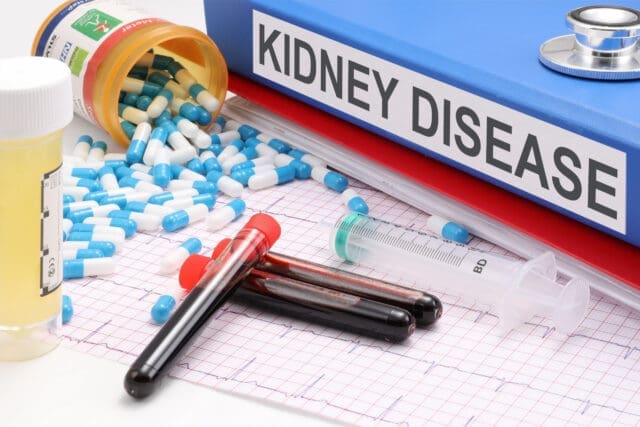Your kidneys are the vital organs in your body. To stay healthy, you need them to function well. If, for some reason you have kidney disease they will not work well, it can result in a life-threatening condition. The damage to the kidneys is irreversible. Therefore you need to protect them and take care of them as they perform various functions, such as:
- Excrete out the waste product from the body
- Regulate blood pressure
- Get rid of toxins, that if accumulated, can be harmful to your body,
- Stimulate the production of red blood cells
- Ensure bone health
If your doctor diagnoses chronic kidney disease (CKD), that means some damage has occurred to it. Due to it, they can not function well, and their filtering abilities are affected. Therefore you need to be extra vigilant about what you consume. If you have any symptoms of kidney disease, you should not delay your visit to the healthcare provider. For more information, you can visit olaoc.com.
CKD is classified into five stages, according to the working abilities of the kidney. In all stages, the symptoms differ. In this article, we will discuss those five stages and their symptoms with you.
Stages of Chronic Kidney Disease (CKD)
The stages of CKD vary from I to V. They can be described further as:
Stage 1 kidney disease
At this stage, very mild damage has occurred to your kidneys. The glomerular filtration rate is greater than 90 ml/minute, and the kidney functioning is greater than 90%. At this stage, you need to take care of your kidneys through diet and exercise. You may not have any such symptoms. Your healthcare provider may get to know about it on routine blood tests.
Stage 2 kidney disease
At this stage, the damage to the kidneys progresses slightly. You may have a slight decrease in kidney function. The glomerular filtration rate is 60 to 89ml/minute. The kidney functioning is 60% to 89%. You may be symptom-free at this stage or have them such as:
- Loss of appetite
- Fatigue
- Weakness
- Itching
- Problem in sleeping
Stage 3 kidney disease
Stage 3 kidney disease is further classified into two types, stage 3A and 3B.
Stage 3A kidney disease means your glomerular filtration rate is 45 to 59ml/min. The kidney functioning is 45 to 59%.
Stage 3B kidney disease means your glomerular filtration rate is 30 to 44ml/minute. The kidney function is 30 to 44%.
Not everyone has symptoms of kidney disease at stage 3. But some may have, such as:
- Swelling of the ankles
- Sleeping problems
- Constant itching
- Loss of appetite
- Unexplained weight loss
- Fatigue and lethargy
- Back pain
- Urinating more or less than usual
The complications that can occur at stage 3 are:
- Anemia
- High blood pressure
- Bone disease
Stage 4 kidney disease
In stage 4 kidney disease, you have got moderate to severe kidney damage. Your glomerular filtration rate will be between 15 to 29ml/min. The kidney functioning is 15 to 29%.
The symptoms at this stage may include:
- Loss of appetite
- Difficulty in sleep
- Chest pain
- Back pain decreased mental alertness
- Nausea and vomiting
- Shortness of breath
- Persistent itching
Complications at this stage can include:
- Anemia
- High blood pressure
- Bone loss
At this stage, you can be at increased risk of stroke and heart diseases.

Stage 5 kidney disease
At this stage, major damage has occurred to your kidneys. The glomerular filtration rate is less than 15ml/minute. Kidney functioning is 15% or less. You may need dialysis or a kidney transplant at this stage. The symptoms at this stage may become severe and show up as:
- Severe weakness
- Back and chest pain
- Difficulty in breathing
- Little to no appetite
- Nausea and vomiting
- Constant itching
If you have kidney disease, you should follow up with your healthcare provider. For an expert opinion, you can visit the nephrologist in Karachi.
Featured Image – Kidney Disease by Nick Youngson CC BY-SA 3.0 Pix4free.org




